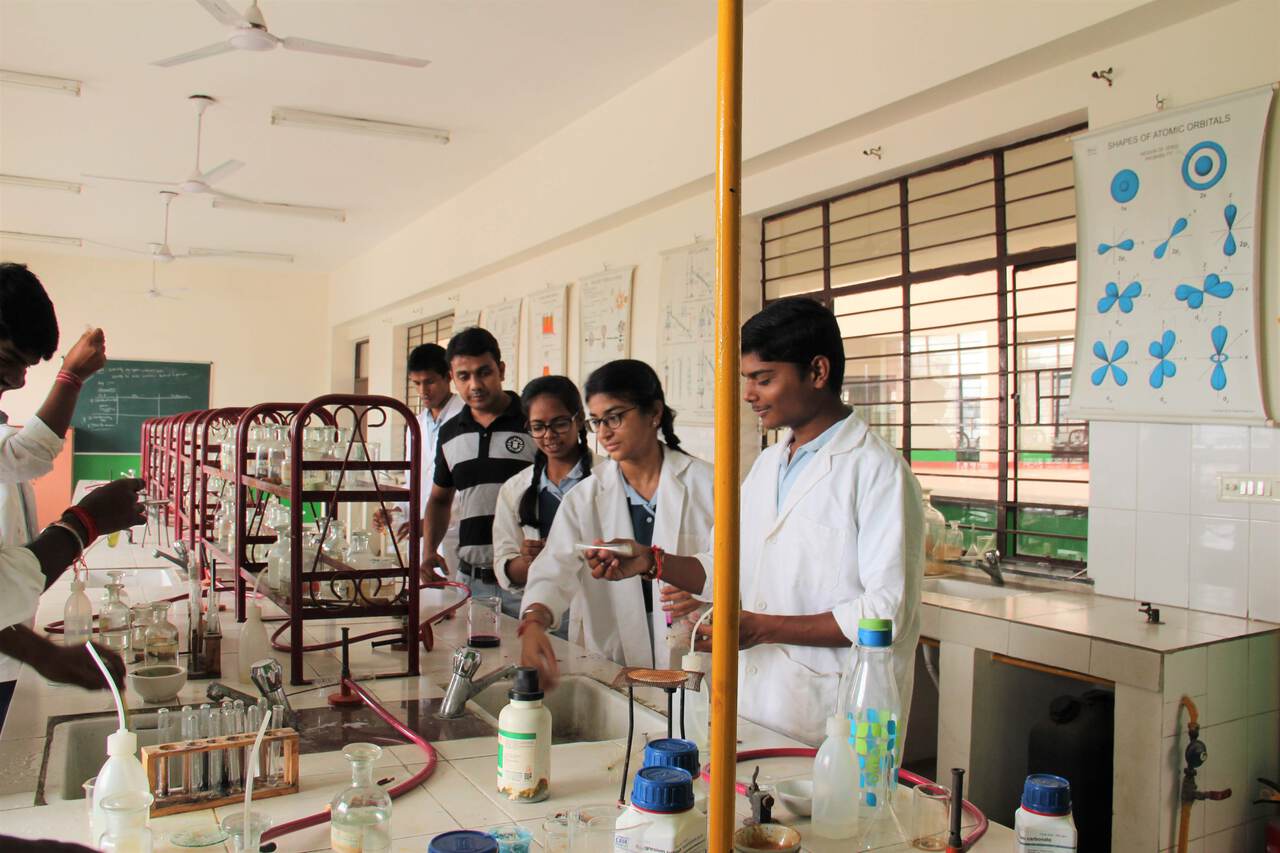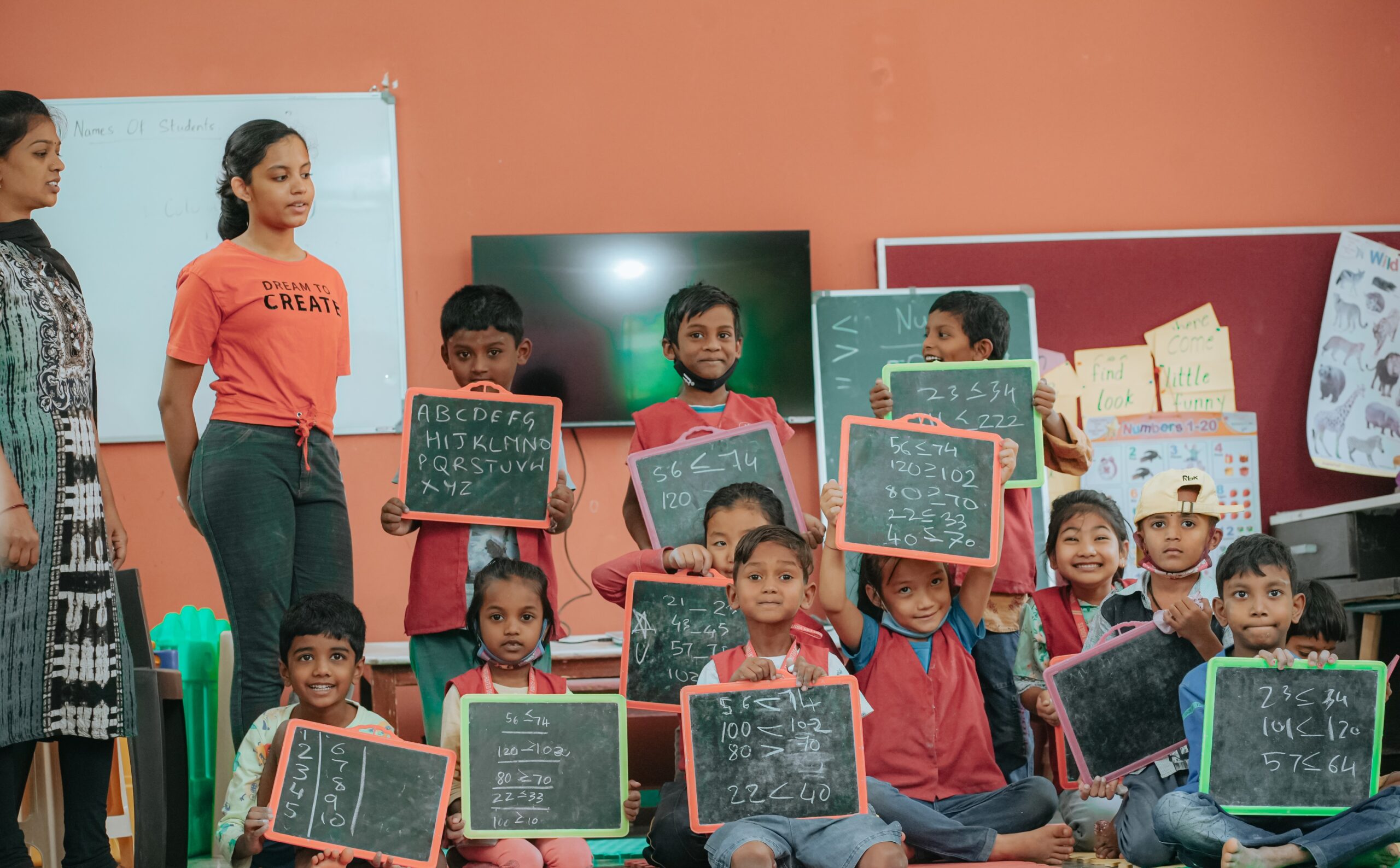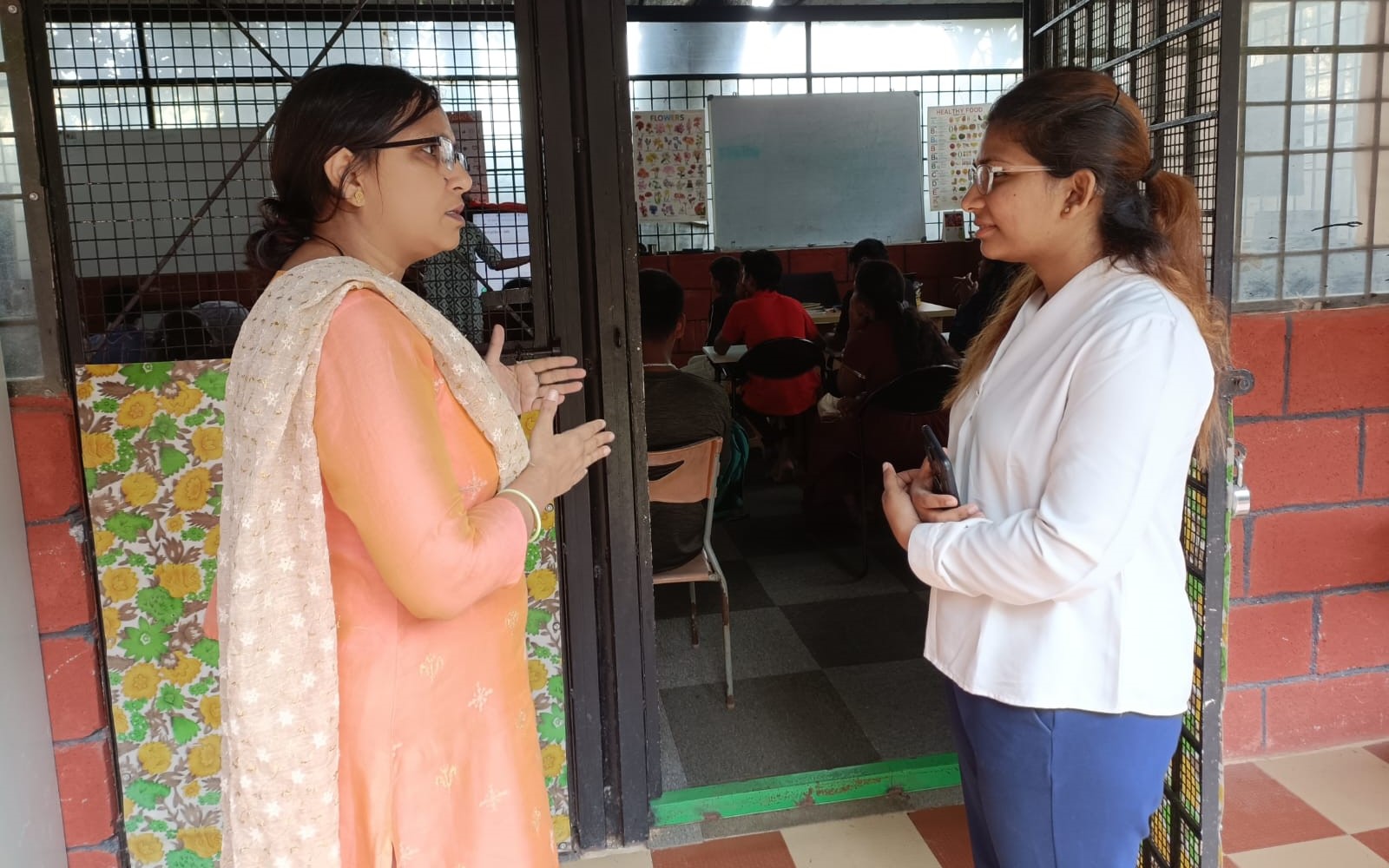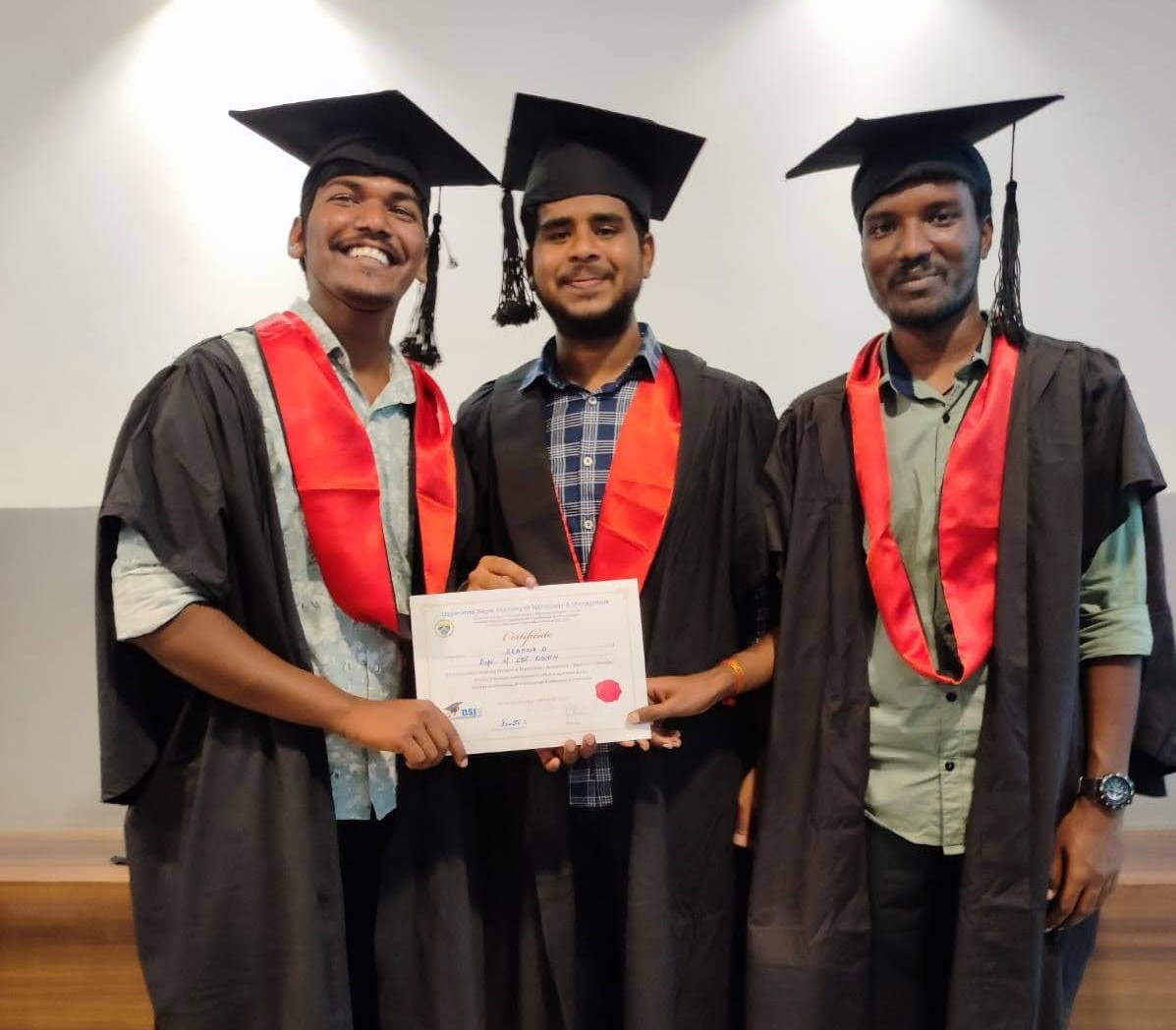
VIDYA School, Gurugram
The VIDYA School in Gurugram, an award-winning, CBSE-accredited K-12 institution, offers holistic education to over 1,200 underprivileged children. With advanced facilities like robotics labs, digital learning, and sports, the school focuses on experiential learning, critical thinking, and empowering students, especially girls, to thrive academically and in leadership. >>

Bal Vihar, New Delhi
For over three decades, VIDYA Bal Vihar Primary School has empowered underprivileged children through holistic education, blending academics, life skills, and values. Students are encouraged to pursue further education, with alumni progressing to prestigious institutions and securing placements in reputable organizations, breaking the cycle of poverty. >>

School Partnership Model
VIDYA's School Partnership Program bridges the gap in quality education for marginalized communities by offering holistic learning. Through partnerships with government schools, low-income private schools and NGOs, it equips children with critical 21st-century skills like digital literacy and life skills, ensuring they receive a well-rounded education that prepares them for future success. >>

VIDYA Community Model
VIDYA's Community Model empowers students through a holistic blend of education, skill development, and community engagement. This comprehensive approach addresses challenges beyond the classroom, fostering grassroots-level sustainable development and enabling students to grow with essential 21st-century skills, contributing to long-term societal progress.

Open Basic Education
VIDYA supports the National Institute of Open Schooling’s (NIOS) Open Basic Education (OBE) program, offering flexible education for marginalized individuals. Accredited up to Level C, VIDYA provides foundational education alongside digital literacy and life skills training, enabling learners to re-enter the formal education system and improve future opportunities.

DigiSkills
VIDYA’s DigiSkill Program bridges the gap between academia and industry by empowering India’s youth with essential digital skills for employment. Through job-ready training, digital expertise, and career readiness coaching, the program enhances employability, fosters lifelong learning, and promotes sustainable livelihoods across urban and rural India. >>

NIOS for School Dropouts
Established in 1994 at IIT Delhi, VIDYA NIOS empowers dropout youth by providing flexible education tailored to their needs. Focusing on digital literacy, life skills, and employability, it enables youth to overcome socio-economic barriers, reintegrate into formal education, and build sustainable career paths.>>

Communicative English
VIDYA’s Communicative English program develops LSRW (Listening, Speaking, Reading, Writing) skills, vital for personal and professional growth. Through practical learning methods like roleplay and theater, it fosters language proficiency and confidence, empowering youth, women, and children to communicate effectively and navigate various life scenarios with ease.>>

Scholarship
VIDYA’s Scholarship Program provides VIDYA beneficiaries from various programs with financial aid, remedial teaching, and life skills training to pursue pre-university, undergraduate, and professional courses. Through mentorship and career guidance, many students are successfully placed in reputable organizations, empowering them for long-term success, particularly female students overcoming financial barriers. >>

Livelihood Skill Training
VIDYA’s Women Empowerment Program equips women with a diverse range of employable skills, including tailoring, crochet, product-making, mehndi design, embroidery, beauty training and culinary skills. Through Self-Help Groups (SHGs) and training in communicative English, digital literacy, and life skills, women are empowered to achieve financial independence and launch successful businesses.>>

Community Awareness
VIDYA's Community Awareness Program empowers underserved communities by providing vital knowledge on health, hygiene, women’s wellness, nutrition, and financial literacy. Through workshops and sessions, it raises awareness about government schemes, legal rights, and digital literacy, helping individuals make informed decisions and contribute to their community’s development.>>
Become a Volunteer
Help make a difference in the lives of the less privileged
Join the VIDYA family of like-minded people who are committed to making a difference in the lives of children, youth and women from underserved communities.
Volunteering with VIDYA is more than just donating your time – it’s an opportunity to transform lives, inspire young minds, and contribute to a brighter future for India. Whether you have a few hours to spare or can commit to a long-term mentorship, your contribution will make a lasting impact.
